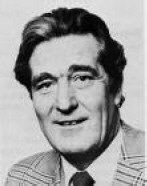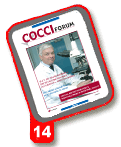Renowned parasitologist Peter Long remembered
Last October, sad news slowly spread throughout the world's poultry industry. Renowned poultry parasitologist Peter Leslie Long had died at age 78 after a short illness.

"Peter Long is a giant in
the history of coccidiosis
research," says colleague Dr.
Martin Shirley, of the Institute
for Animal Health, United
Kingdom, who was mentored
by Long.
According to Long's colleague
Dr. Ray B. Williams, Long demonstrated a flair for
innovation early on when he served in the Royal Army
Medical Corps and suggested using the erythrocyte fragility
test as an aid to diagnosing Cooley's anaemia in Maltese
families.
After his military service, Long worked in parasitology
research at the entity now known as the Agricultural
Research Council, a British government body. Despite no
formal academic qualifications at the time, he made steady
and impressive progress in his career and innumerable contributions
to the field of coccidiosis research. Long studied
part time and, in 1952, became a member of the Institute of
Medical Laboratory Technology by examination and, by
1956 obtained Fellow status.
Long had many other accomplishments too numerous to
list here that included a steady stream of publications as
well as teaching positions and fellowships around the
world. In 1971, he received a PhD from Brunel University
for his work on avian coccidia and, in 1977, was awarded a
DSc, says Shirley. Long was a recipient of the Tom Newman
Medal for Poultry Research from the British Poultry
Breeders and Hatcheries Association and an honorary
member of the British Veterinary Poultry Association. He
co-edited a book entitled The Coccidia, which became the
first in a series of volumes that have stood the test of time
and continue to be useful reference texts.
In 1979, Long succeeded Prof. W. Malcolm Reid as
Professor in the Department of Poultry Science at the
University of Georgia. In 1983, Long was awarded the title
of D.W. Brooks Distinguished Professor of Poultry Science,
which he held until 1990, when he returned to the UK for
retirement.
Of Long's many important contributions to the knowledge
of coccidia, says Williams, one of the most significant
was his demonstration that Eimeria tenella can develop in
chicken embryos.
Improved approaches to attenuation, such as the use of
specific-pathogen-free birds, were initiated by Long, leading
to the creation of anticoccidial vaccines through the full
attenuation of all remaining poultry Eimeria. Long provided
tools for other workers to explore the biology and
chemotherapy of coccidia.
Adds Shirley: "[Long's] later contributions to coccidiosis
research continued to reflect his desire to improve and
understand the control of disease and his early work in
Georgia was pivotal to the first understandings of the relationship
between pathological changes in the intestines and
body weight changes of vaccinated or naive chickens after
challenge, findings that were to become important considerations
in the evaluation of vaccines."
Williams notes that Long was also highly respected for
his support and encouragement of younger researchers. His
generosity in sharing ideas and authorship of publications
was widely acknowledged, and the international scientific
community showed its appreciation with a dedication to
Long at the Ninth International Coccidiosis Conference in
Brazil, 2005.







